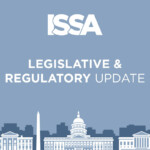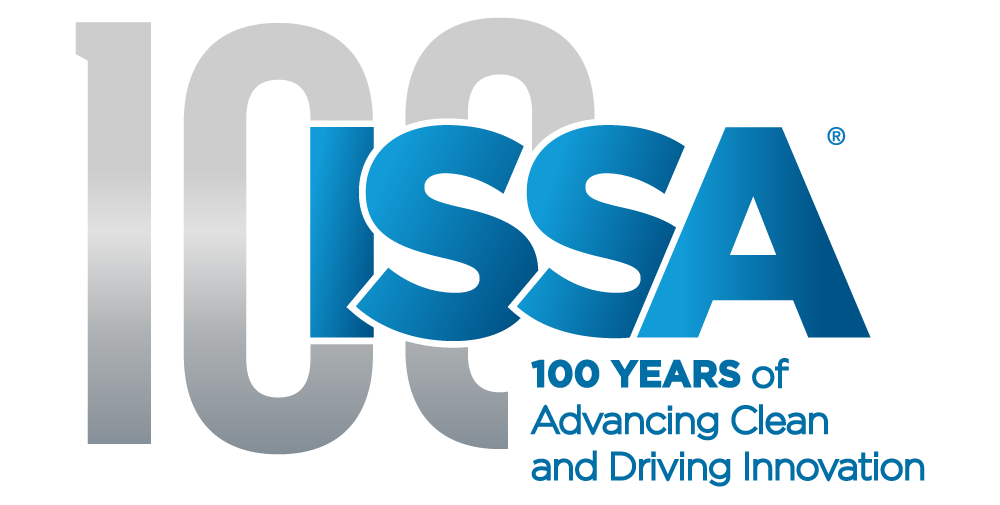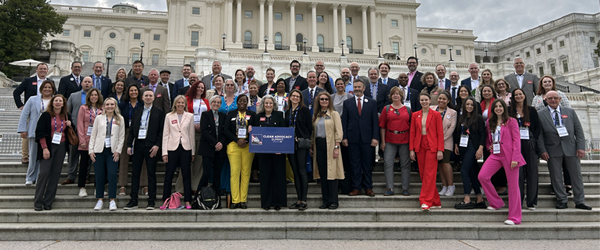ISSA LARU—U.S. House Passes WIPPES Act
 Welcome to the latest ISSA Legislative & Regulatory Update, a biweekly roundup of the public-policy issues currently impacting the full cleaning supply chain. This update touches on the ISSA-supported WIPPES Act passing the U.S. House, a janitorial workloading bill advancing in California, an ISSA survey on period-friendly restrooms, and more.
Welcome to the latest ISSA Legislative & Regulatory Update, a biweekly roundup of the public-policy issues currently impacting the full cleaning supply chain. This update touches on the ISSA-supported WIPPES Act passing the U.S. House, a janitorial workloading bill advancing in California, an ISSA survey on period-friendly restrooms, and more.
Want to stay informed about critical government affairs impacting the cleaning industry? Sign up here to have the ISSA Legislative & Regulatory Update emailed directly to you every other week.
ISSA Advocacy
ISSA-Supported WIPPES Act Passes U.S. House
The U.S. House of Representatives overwhelmingly passed the Wastewater Infrastructure Pollution Prevention and Environments Safety (WIPPES) Act (H.R. 2964), which ISSA strongly supports. This bipartisan legislation is intended to address the growing problem of sewer-system clogs caused by improper disposal of consumer wipes that are not intended to be disposed of in toilets. Learn more
California Assembly Passes Janitorial Workloading Bill
On May 22, the California State Assembly amended and passed a bill (AB 2364) that would have imposed a 2,000 square feet per hour production-rate limit for workers, as well as increased the costs of mandatory, in-person harassment-training programs for all cleaning-service employers. While the amended legislation removed the production-rate limit, if enacted, it would establish an advisory committee to develop and approve “a comprehensive set of recommended regulations establishing janitorial standards for the purpose of protecting the health and safety of workers” by January 2026.
ISSA has been actively lobbying on the bill since it was introduced in April. While the 2,000 square feet production rate originally included in the legislation was removed, ISSA continues to oppose AB 2364 as written due to the significant impact that it could have on the industry. Learn more
Take Action Now: As AB 2363 continues to advance, we strongly encourage those who are based in or operate cleaning companies in California to contact your elected officials (use your California address) by utilizing ISSA’s Advocacy Action Center. This link can also be shared with your customers and vendors who may be negatively impacted by these proposed regulations. Take action now
Take the ISSA Period Friendly Restroom Survey
Far too few facilities consider the impact of their menstruating occupants being left unprepared if their period comes unexpectedly. ISSA’s survey—Are Your Restrooms Period Friendly?—aims to assess if facilities are implementing period-care dispenser and disposal solutions in their bathrooms, and if not, why they have not. Learn more and take the survey
Proposed EPA Rule Targets Chemical Found in Cleaning Products
The U.S. Environmental Protection Agency (EPA) proposed a rule to protect workers and consumers from exposure to toxic solvent n-methylpyrrolidone (NMP). NMP has numerous industrial, commercial, and consumer applications, including adhesives and sealants, paints and coatings, paint removers, lubricants, automotive care products, degreasers, and cleaning and furniture-care products. NMP is also used to manufacture and produce many electronics, polymers, agricultural chemicals, and petrochemical products. Learn more
ISSA Webinar: Introduction to the Regulation of Chemical Cleaning Products
Join ISSA’s free webinar Introduction to the Regulation of Chemical Cleaning Products in the US on July 31 to gain a clear understanding of the key federal regulations that impact chemical-based cleaning products. This webinar will provide an overview of the major laws that govern labeling and how manufacturers communicate potential hazards related to various cleaning-product categories. Learn more and register
Colorado Schools to Provide Free Menstrual Products
The Colorado House of Representatives passed House Bill 24-1164, also known as the Free Menstrual Products to Students Bill. The legislation requires middle and high schools throughout Colorado to provide free pads and tampons for students to mitigate period poverty. Learn more
Legislative
Warehouse Worker Protection Act Introduced in U.S. House
Representatives Donald Norcross (D-NJ), Chris Smith (R-NJ), Haley Stevens (D-MI), and Mike Lawler (R-NY) introduced the Warehouse Worker Protection Act in the U.S. House of Representatives. The legislation would require companies with large warehouses to disclose quotas to workers and prohibit quotas that “interfere with health and safety.” A similar bill was introduced in the U.S. Senate last month. Learn more
Regulatory
EPA Releases Finalized Test Methods for Measuring Disinfectant Residue Levels on Hard Surfaces
The U.S. Environmental Protection Agency (EPA) released finalized test methods for measuring disinfectant residues on hard surfaces treated with two classes of disinfectants—quaternary ammonium compounds and phenolic compounds—after they have been rinsed with water (known as a potable water rinse). Estimating the amount of disinfectant residue after rinsing a treated surface, like cutting boards and countertops, with water is, according to EPA, “an important step in refining dietary risk assessments for disinfectant products that may come in contact with food.” Learn more
GSA Advantage and Safer Choice Update
The U.S. General Service Administration’s (GSA) updated custodial specifications require that contractors use cleaners and hand soaps certified to the EPA Safer Choice, Green Seal® GS-37, Green Seal® GS-41, or Green Seal® GS-53 certifications, which do not allow intentionally added PFAS in product formulations. This is in addition to meeting federal statutory requirements, including the minimum biobased content requirement set by the U.S. Department of Agriculture’s BioPreferred Program.
Currently, GSA’s Public Building Service has more than 600 contracts for custodial services at more than 1,500 U.S. government-owned buildings at a cost of more than US$400 million per year and expects that most of these contracts will include the new specifications within five years.
What OSHA’s Walkaround Rule Means for Employers
The U.S. Occupational Safety and Health Administration’s (OSHA) “Worker Walkaround Representative Designation Process” went into effect on May 31. The Walkaround Rule significantly expands which third parties are permitted to participate in an onsite OSHA investigation and clarifies that employees have the right to designate a non-employee third party to be their representative, Facility Executive reports. Learn more
SBA Unveils New Credit Lines up to $5 Million for Small Businesses
The U.S. Small Business Administration (SBA) unveiled new government-backed credit lines of up to US$5 million for small businesses, according to Cleaning & Maintenance Management. Learn more
Biden Limits Asylum-Seeker Crossings
President Joe Biden unveiled plans to enact immediate restrictions on migrants seeking asylum at the U.S.-Mexico border, AP reports. Learn more
FMC Breaks Down Questions on New Detention, Demurrage Rule
The U.S. Federal Maritime Commission’s (FMC) revision to the detention and demurrage rule recently went into effect, and the new requirements for billing and timeframe of each step have raised questions in the logistics industry, according to American Shipper. Learn more
Judicial
Labor Board Joint-Employer Challenge to Move First in 5th Circuit
The U.S. Court of Appeals for the District of Columbia Circuit is “taking a back seat” in the legal battle over the U.S. National Labor Relations Board’s joint-employer rule, putting proceedings there on hold until the Fifth Circuit rules in a similar case, Bloomberg Law reports. Learn more
State News
OEHHA Moves Closer to Finalizing Short Form Warning Requirements
California’s Office of Environmental Health Hazard Assessment (OEHHA) released their decision on changes to the Prop 65 short form warning label following their proposal and comment period last fall. Two primary takeaways from these changes are that OEHHA 1) is increasing the time for implementation of revised warning content from two to three years and 2) will revert to the original regulation text for most of the internet and catalog warning content. More information on these changes will be forthcoming from ISSA. Learn more
California Legislature: Don’t Limit How Much an Office Cleaner Can Do in an Hour
In this The Sacramento Bee opinion piece, Michele Ware, President of BOMA Greater Los Angeles, asserts that “Square footage is one of many variables when considering cleaning times and work loading, and it is an insufficient metric for physical exertion by itself. In fact, there is no singular metric that is an acceptable proxy for physical exertion, according to [ISSA] the Worldwide Cleaning Industry Association.” Learn more
Texas Sues over Biden Overtime-Pay Rule
Texas filed a lawsuit seeking to strike down a Biden administration rule extending mandatory overtime pay to four million salaried workers, Cleaning & Maintenance Management reports. Under the new rule, the salary threshold will increase to US$43,888 on July 1 and $58,656 on January 1, 2025. Learn more
Connecticut to Make Private Employers Provide Paid-Sick Leave
Governor Lamont signed into law new legislation that significantly expands Connecticut’s existing paid-sick leave law by requiring that virtually all private employers in the state provide employees with paid-sick leave no later than January 1, 2027, according to Littler. Learn more
Minnesota Employers Face Increased Scrutiny for Using Independent Contractors
Governor Tim Walz signed into law significant changes to Minnesota’s independent contractor and employment laws, Littler reports. Effective July 1, all employers risk significantly increased penalties for misclassifying employees as independent contractors. Learn more
















